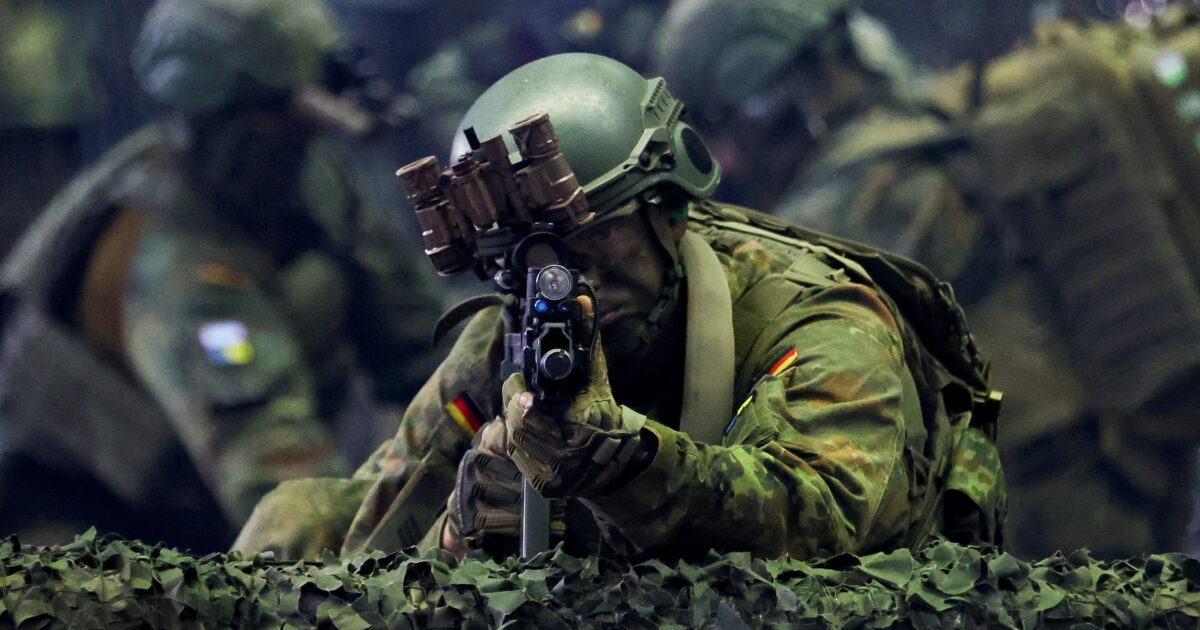The bill on volunteer military service to Germanywhich has sparked several reactions within the country, was approved today (27.08.2025) by the Council of Ministers and now “paves the way” to reinstate compulsory military.
At a time when Germany seeks to strengthen its national defense amid concerns about Russia’s security, the voluntary military bill is regarded as being considered as it A necessary measure to meet certain operational needs.
The Ministry of Defense hopes that this six -month volunteer plan will help double the number of trained reserves from the current level of about 100,000 and that some of the volunteers will continue to work for the Armed Forces.
«Russia is and will remain the biggest threat to Europe’s security for a long time. “Chancellor Friedrich Mertz said at a press conference following the approval by the cabinet’s cabinet.
«Germany returns on the way to an army based on military service“, He stressed.
OR Approval of the bill by the Federal Parliament (Bundestag) probably will pass through Complexesin a test of Germany’s commitment to boost national defense in times of increasing security threats after Russia’s invasion of Ukraine in 2022.
The German Army needs staff
Germany has put an end to the previous compulsory military service plan in 2011 and has since difficult to achieve the numerical numbers for military forces.
Defense Minister Boris Pistorius wants to increased the number of soldiers in service from 180,000 to 260,000 by the early 2030sin order to achieve the new NATO goals and to strengthen Germany’s defense – in the context of a planned increase in military spending.
“The Bundeswehr (the German Armed Forces) must grow,” Pistorius said at a press conference today (27.08.2025). “The international security situation, above all, Russia’s aggressive attitude, makes it necessary. (…) ”We do not only need a well -equipped power – we are already on the right track there“, He continued.
«But we also need a bundeswehr that is strong in terms of staff. Only then will the whole deterrence be truly credible to Russia.
The Minister of Defense described the existing bill a ‘huge step forward“That could change the mentality of many young Germans, promoting the ideal of the country’s service. A strong army is the most effective means of preventing wars, he argued.
The Points of Reference to the Bill
The bill provides for some annual recruitment objectives for the new voluntary program: an increase from 20,000 in 2026 to 38,000 in 2030.
If these numbers are not achieved, the government could instead choose to restore compulsory recruitment, subject to parliamentary approval, according to the latest draft bill.
Already the current bill contains some mandatory information, with all young men being obliged to complete an electronic questionnaire on their willingness and abilities for military service after the age of 18, so that there is a better picture of potentially available staff.
The reactions
Critics, especially within the Conservative party of Chancellor Mertz, say that the approval of the Bundestag bill could delay the reinstatement of compulsory recruitment. They want the bill to automatically activate compulsory recruitment if the objectives are not achieved.
Mertz’s conservatives from the Christian Democratic Union (CDU) have pressed for the immediate introduction of compulsory mandate, a move by the partners of their coalition in the center -left Social Democratic Party (SPD).
MPs of the Social Democrats (SPD) of Pistorius, who participate in the government coalition, stress that The priority should be to make Bundeswehr attractive employer instead of returning to compulsory recruitment.
The Ministry of Defense is increasing advertising campaigns in many parts of the country, organizing events to promote career in the army, and have opened new troops in recent years in an effort to recruit more soldiers.
The Armed Forces reported 28% increase in recruitersto more than 13,700 people from January to the end of July 2025, compared to the same period last year, in What the ministry has been described as the steepest increase in recent years.
